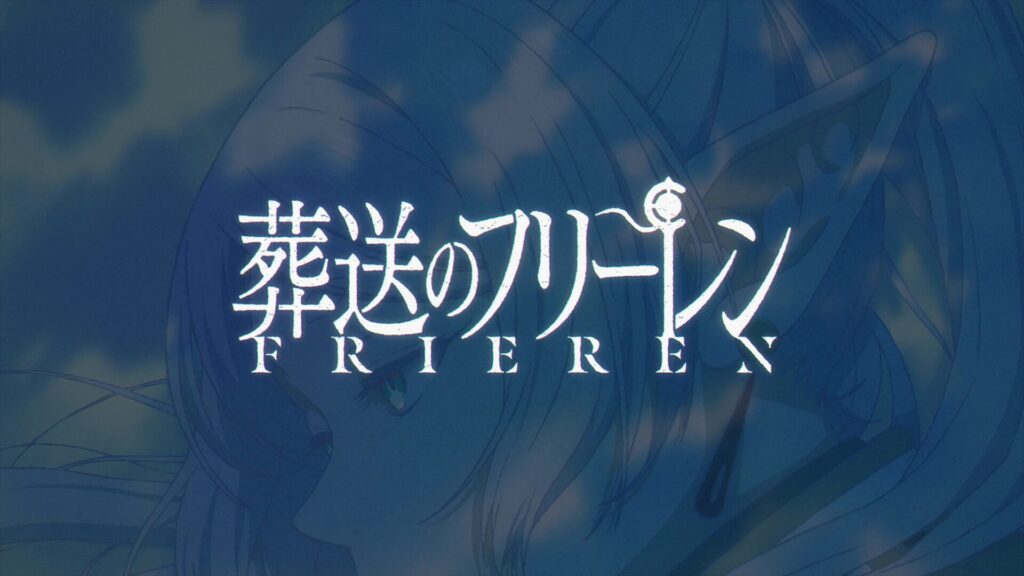
セリフ6:千年後にも届く後悔
こいつが成長すれば、千年だろうがこの場所を守り続ける。その頃には先生死んでるでしょ。だがお前は違う。お前はいつか大きな過ちを犯し、人を知りたいと考えるようになる。
This little sapling’ll grow. In a thousand years, it’ll still be protecting this place.
Probably so, but you’ll be dead by then.
Well, sure, but you won’t be.
Someday down the line, you’re going to make a horrid mistake, and you’ll wish you had gotten to know the people around you.
🔤 語彙解説
sapling /ˈsæplɪŋ/(名詞):若木、苗木
→ 成長中の小さな木。比喩として「成長する存在」も表す。
protect /prəˈtɛkt/(動詞):守る、保護する
→ 危険や損傷から誰かや何かを守るときに使う動詞。
probably /ˈprɒbəbli/(副詞):たぶん、おそらく
→ 断言ではないが可能性が高いときの表現。
horrid /ˈhɒrɪd/(形容詞):ひどい、恐ろしい
→ 感情的に強い嫌悪を伴うネガティブな語。
wish you had gotten /wɪʃ juː həd ˈɡɒtn/(構文):~しておけばよかったと思う
→ 仮定法過去完了で、過去への後悔を表す。
people around you /ˈpiːpəl əˈraʊnd juː/(名詞句):周囲の人々
→ 「自分の身の回りにいる人たち」という柔らかい表現。
🧠 文法・構文解説
This little sapling’ll grow. In a thousand years, it’ll still be protecting this place.
“sapling’ll” は “sapling will” の短縮形で口語的。”it’ll still be protecting” は未来進行形で「守り続けているだろう」という継続の予測。
Probably so, but you’ll be dead by then.
“Probably so” は「おそらくそうだろう」の意味。”by then” は「その時までに」という時点を表す副詞句。
Well, sure, but you won’t be.
“you won’t be” の “be” は省略されているが、「死んでいない(生きている)」という意味で前文を受けた省略表現。
Someday down the line, you’re going to make a horrid mistake, and you’ll wish you had gotten to know the people around you.
“Someday down the line” は「いつか将来」。“you’re going to make” は確信をもった未来の予測。”you’ll wish you had gotten to know…” は仮定法過去完了で「もっと知っておけばよかったと思うようになる」という後悔の構文。
📘 スラッシュリーディング訳
This little sapling’ll grow. /
この小さな苗木は成長して、
In a thousand years, /
千年経っても、
it’ll still be protecting this place. /
この場所を守り続けているはずだ。
Probably so, /
たぶんそうだろう、
but you’ll be dead by then. /
でもその頃には君は死んでいる。
Well, sure, /
まあ確かに、
but you won’t be. /
でも君は違うだろう。
Someday down the line, /
いつか将来、
you’re going to make a horrid mistake, /
ひどい過ちを犯すことになる。
and you’ll wish /
そして願うようになるだろう、
you had gotten to know the people around you. /
周囲の人々のことをもっと知っておけばよかったと。
セリフ7:死者との対話とフランメの先見
死者との対話についての記述はあるか?ご丁寧にそのページが開かれている。千年も前から私がここに来ることがわかっていたのか。相変わらず嫌味な奴だ。
Does it say anything about speaking with the dead?
It was already open to that very page.
So she knew a thousand years ago that I would come back here someday.
What an unpleasant woman.
🔤 語彙解説
say /seɪ/(動詞):~と書いてある、述べる
→ 書物や文章に情報が「記されている」ことを表す。
very /ˈvɛri/(形容詞):まさにその
→ 強調を表す語で、「まさに〜そのもの」というニュアンス。
someday /ˈsʌmˌdeɪ/(副詞):いつか
→ 明確な時は未定だが将来に起こるであろうことを表す。
unpleasant /ʌnˈplɛzənt/(形容詞):嫌な、不快な
→ 性格や雰囲気が不快・意地悪であるときに使う。
page /peɪdʒ/(名詞):ページ
→ 書籍の1つの紙面を指す、基本的な語。
speaking with the dead /ˈspiːkɪŋ wɪð ðə dɛd/(表現):死者との対話
→ スピリチュアルやファンタジー文脈で使われる定番表現。
🧠 文法・構文解説
Does it say anything about speaking with the dead?
“Does it say anything about…” は「〜について何か書いてある?」という定型表現。”speaking with the dead” が質問の主語的対象。
It was already open to that very page.
“that very page” は「まさにそのページ」を意味し、”very” によって強調されている。”open to” は「〜のページが開かれている」状態を示す。
So she knew a thousand years ago that I would come back here someday.
“that I would come back here someday” は従属節で未来の動作を過去形 “would” で表現。”someday” は「いつか」の意味。
What an unpleasant woman.
“What a(n)+形容詞+名詞” の感嘆文構文で、「なんて〜なんだ」という意味。”unpleasant” は「嫌味な・感じの悪い」。
📘 スラッシュリーディング訳
Does it say /
何か書かれているかい
anything about speaking with the dead? /
死者と話すことについて。
It was already open /
すでに開かれていた
to that very page. /
まさにそのページに。
So she knew /
つまり彼女は知っていたんだ
a thousand years ago /
千年前に
that I would come back here someday. /
私がいつかここに戻ってくることを。
What an unpleasant woman. /
本当に嫌味な女だ。
セリフ8:旅の目的地と再会の約束
フリーレン、オレオールを探してヒンメルと話すんだ。俺を手伝ってくれるんだろ?悪知恵をつけたね、アイゼン。ハイターのおかげだな。わかったよ、どうせ当てのない旅だ。
Frieren… you must go to Aureole and speak with Himmel.
You said you would help me, did you not?
You’ve picked up a few tricks.
Where? I think we both know the answer to that.
I’ll do it then. We needed a destination.
🔤 語彙解説
must /mʌst/(助動詞):~しなければならない
→ 強い意志や命令、義務のニュアンスをもつ。
speak with /spiːk wɪð/(動詞句):~と話す
→ 「to」よりも対等で親密な印象のある言い回し。
pick up /pɪk ʌp/(句動詞):身につける、覚える
→ 技術・知識・癖などを自然に習得することを表す。
trick /trɪk/(名詞):小技、策略
→ 技やずる賢さを表す語。口語では「テクニック」的な使い方も。
destination /ˌdɛstɪˈneɪʃən/(名詞):目的地
→ 旅や行動の「最終的に向かう場所」を意味する語。
help /hɛlp/(動詞):助ける、手伝う
→ 会話でも頻出。助動詞的にも使われる柔らかい動詞。
🧠 文法・構文解説
Frieren… you must go to Aureole and speak with Himmel.
“must” は強い義務・必要性を示す助動詞。”go to A and B” の構文で「オレオールへ行き、ヒンメルと話す」という2つの動作を表している。
You said you would help me, did you not?
“did you not?” は付加疑問文の丁寧・強調表現。”you said you would…” は「〜してくれるって言ったよね」という確認の構文。
You’ve picked up a few tricks.
“pick up” は「身につける・覚える」の意味で、”a few tricks” によって「一枚上手になったな」という含みをもたせた表現。
Where? I think we both know the answer to that.
“Where?” は一語で投げかける問い。”we both know the answer to that” は「その答えはお互い分かっている」という確信を含んだ表現。
I’ll do it then. We needed a destination.
“I’ll do it then” は前文を受けた納得・同意の意。”We needed a destination” は「どうせ行き先も決まってなかった」という軽い皮肉を込めた説明。
📘 スラッシュリーディング訳
Frieren… /
フリーレン、
you must go /
行かなきゃならない
to Aureole /
オレオールへ
and speak with Himmel. /
そしてヒンメルと話すんだ。
You said /
君は言ったよね
you would help me, /
手伝ってくれるって
did you not? /
そうだろ?
You’ve picked up a few tricks. /
悪知恵がついたな。
Where? /
どこからだと思う?
I think we both know the answer to that. /
答えはお互いわかってるよな。
I’ll do it then. /
じゃあやるよ。
We needed a destination. /
どうせ旅に目的地が必要だったし。
セリフ9:人生の百分の一
時間の無駄だからね。いろいろ教えてもすぐ死んじゃうでしょ。フリーレン、人との関係はそういうものじゃない。そういうものだよ。みんなとの冒険だって、私の人生の100分の1にも満たない。
I fear it would be a waste of time.
No matter how much I teach them, they’ll surely die.
How cheery. That’s not how relationships work.
That’s how they work for me.
Just consider our adventure. It’s taken up less than one one-hundredth of my life.
🔤 語彙解説
waste of time /weɪst əv taɪm/(表現):時間の無駄
→ 無意味な努力や行動を指す、よく使われる表現。
no matter how /nəʊ ˈmætə haʊ/(構文):どれだけ~しても
→ 条件を問わず結果が変わらないことを示す。
cheery /ˈtʃɪəri/(形容詞):陽気な(※皮肉としても使われる)
→ ここでは「明るいな」と皮肉交じりの意味。
relationship /rɪˈleɪʃənʃɪp/(名詞):人間関係
→ 対人関係全般に使える基本語。
one one-hundredth /wʌn wʌnˈhʌndrɛdθ/(数詞):百分の一
→ 比率や割合を表す表現。非常に小さい時間の比喩として使われている。
consider /kənˈsɪdər/(動詞):~と見なす、~を考慮する
→ 状況や事実をどう捉えるかを示すときに使う。
🧠 文法・構文解説
I fear it would be a waste of time.
“I fear…” は「〜ではないかと懸念している」という丁寧な表現。”would be” は仮定的な予測を表す。
No matter how much I teach them, they’ll surely die.
“No matter how much…” は譲歩構文で「どんなに〜しても」。”surely” は「確実に/きっと」の意味で死を避けられないことを強調。
How cheery. That’s not how relationships work.
“How cheery.” は皮肉で「なんて前向きな考え方だ」と逆の意味。”That’s not how…” は「〜ってそういうものじゃない」の定型表現。
That’s how they work for me.
前文に対して “for me” を加えることで「私にとってはそうなんだ」と主観的な反論になっている。
Just consider our adventure. It’s taken up less than one one-hundredth of my life.
“Just consider…” は「〜を考えてみて」という呼びかけ。”less than one one-hundredth” は「100分の1以下」で、時間感覚の違いを際立たせている。
📘 スラッシュリーディング訳
I fear /
私は思う
it would be a waste of time. /
それは時間の無駄だと。
No matter how much I teach them, /
どれだけ教えたとしても、
they’ll surely die. /
彼らはいずれ必ず死んでしまう。
How cheery. /
明るい考えだな(皮肉)。
That’s not how /
それは違うよ
relationships work. /
人との関係って、そういうものじゃない。
That’s how /
そういうものなんだ
they work for me. /
少なくとも私にとってはね。
Just consider our adventure. /
私たちの冒険を考えてみてよ。
It’s taken up /
それが占めたのは
less than one one-hundredth of my life. /
私の人生の百分の一にも満たないんだ。
セリフ10:たった10年の冒険
すまんな、長い旅路になる。俺たちは10年かかった。そうか、ヒンメル様たちが魔王城を目指した道のりと同じなんですね。そうだね。たった10年の冒険だよ。
Forgive me. You have a long journey ahead.
It took the four of us ten years.
I see. So, we’ll be following the same route you took to the Demon King’s castle on your first journey.
That we will. Another brief, ten-year adventure.
🔤 語彙解説
forgive me /fərˈɡɪv mi/(表現):許してくれ
→ 軽く謝罪したいときに使われる定番のフレーズ。
journey /ˈdʒɜːni/(名詞):旅路、道のり
→ 長くて困難な旅に使われることが多い語。
route /ruːt/(名詞):経路、道筋
→ 特定の目的地に向かう道や方法を示す語。
brief /briːf/(形容詞):短い、簡潔な
→ 文脈によっては皮肉的に使われることもある(ここでは「10年を短いと表現」)。
ahead /əˈhɛd/(副詞):前方に、先に
→ 空間的・時間的に先のことを表す。
🧠 文法・構文解説
Forgive me. You have a long journey ahead.
“Forgive me.” は謝罪や前置きで使われる表現。”have A ahead” は「これから〜が待っている」という意味で、”a long journey ahead” は「長い旅路が控えている」。
It took the four of us ten years.
“take 人 時間” の構文で「〜に時間がかかる」。”the four of us” は「私たち4人全員」を指している。
I see. So, we’ll be following the same route you took to the Demon King’s castle on your first journey.
“we’ll be following” は未来進行形で「〜していく予定」。”the same route you took to…” は「君たちが通ったのと同じ道」。
That we will. Another brief, ten-year adventure.
“That we will.” は強調の倒置表現で「まさにその通りだね」。“brief, ten-year adventure” は皮肉的に「たった10年の旅」を表現している。
📘 スラッシュリーディング訳
Forgive me. /
すまない。
You have a long journey ahead. /
君には長い旅が待っている。
It took /
かかったんだ
the four of us /
私たち4人には
ten years. /
10年も。
I see. /
そうですか。
So, we’ll be following /
つまり私たちはたどることになる
the same route you took /
あなたたちが通った道筋を
to the Demon King’s castle /
魔王城へ向かう
on your first journey. /
最初の冒険で。
That we will. /
そのとおり。
Another brief, /
もう一度の、短い
ten-year adventure. /
10年の冒険だよ。
✨まとめ:「過去との対話」が導く、心の成長
Frieren reads the ancient notes of Flamme, /
フリーレンはフランメの古文書を読み、
which mention conversations with the dead. /
そこには死者との対話が記されていた。
Eisen urges her /
アイゼンは彼女に促す
to speak to Himmel directly. /
ヒンメルに直接想いを伝えるようにと。
Though hesitant at first, /
最初はためらっていたが、
Frieren agrees /
フリーレンは決意する
to visit Aureole, /
オレオールを目指し
where souls are said to rest. /
魂が眠るとされる場所へ。
Meanwhile, /
一方で
Fern begins to notice changes in Frieren. /
フェルンはフリーレンの変化に気づき始める。
She sees how Frieren tries /
フリーレンが努力している姿を見る
to understand others more deeply. /
他者をもっと深く理解しようと。
Their bond grows stronger /
二人の絆は強くなっていき、
as they journey together. /
共に旅をするなかで。
With the past as her guide /
過去を道しるべに、
and regret in her heart, /
後悔を胸に抱きながら、
Frieren takes another step forward. /
フリーレンはまた一歩、前へと進む。
💡 まとめ語彙解説
ancient /ˈeɪnʃənt/(形容詞):古代の、昔の
→ 非常に古い文書や建物などを指すときに使います。
urge /ɜːrdʒ/(動詞):促す、強く勧める
→ 相手に強く何かをしてほしいときに使う動詞です。
hesitant /ˈhezɪtənt/(形容詞):ためらう、決断できない
→ 心の迷いや不安を含む態度を表します。
regret /rɪˈɡret/(名詞):後悔
→ 過去の出来事に対する悔やみや未練を意味します。
bond /bɑːnd/(名詞):絆、結びつき
→ 人と人との深い心のつながりを表現します。
guide /ɡaɪd/(名詞):導き、手引き
→ 方向や道を示す存在(人・考え・過去など)に使われます。


